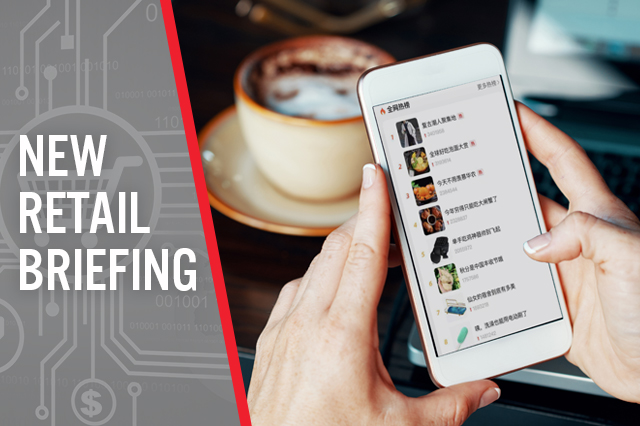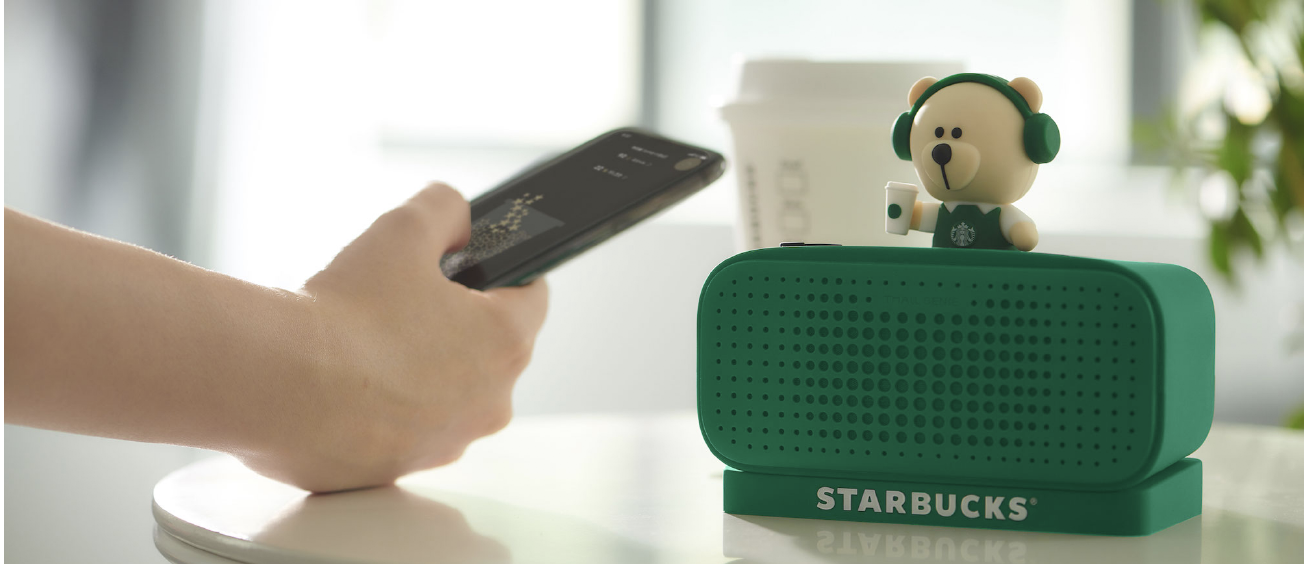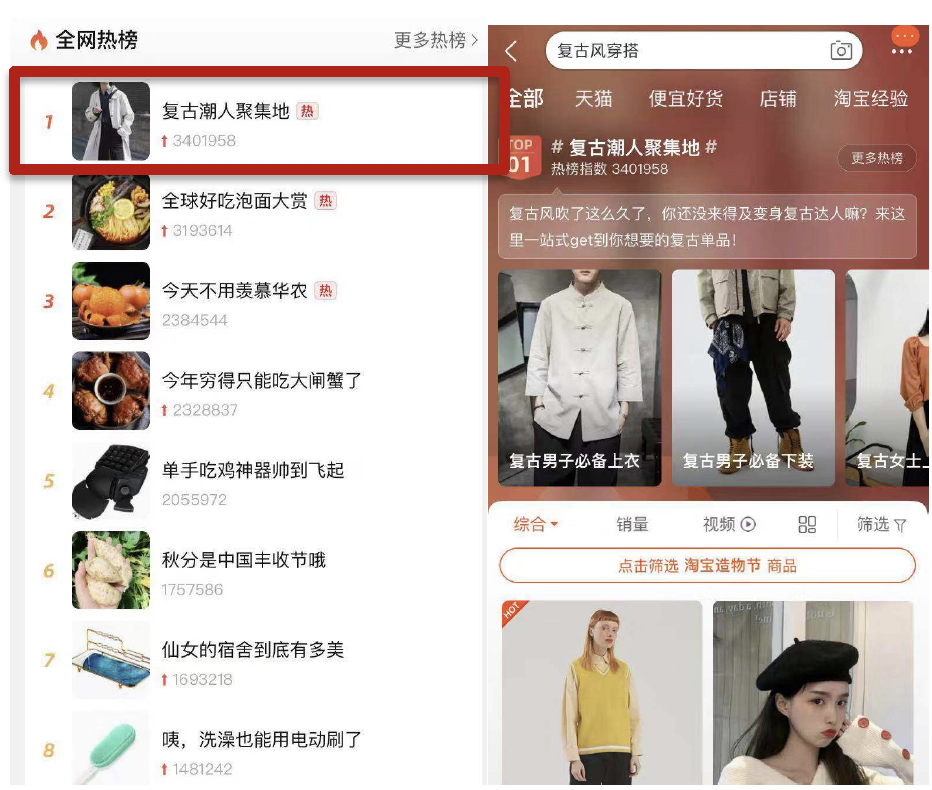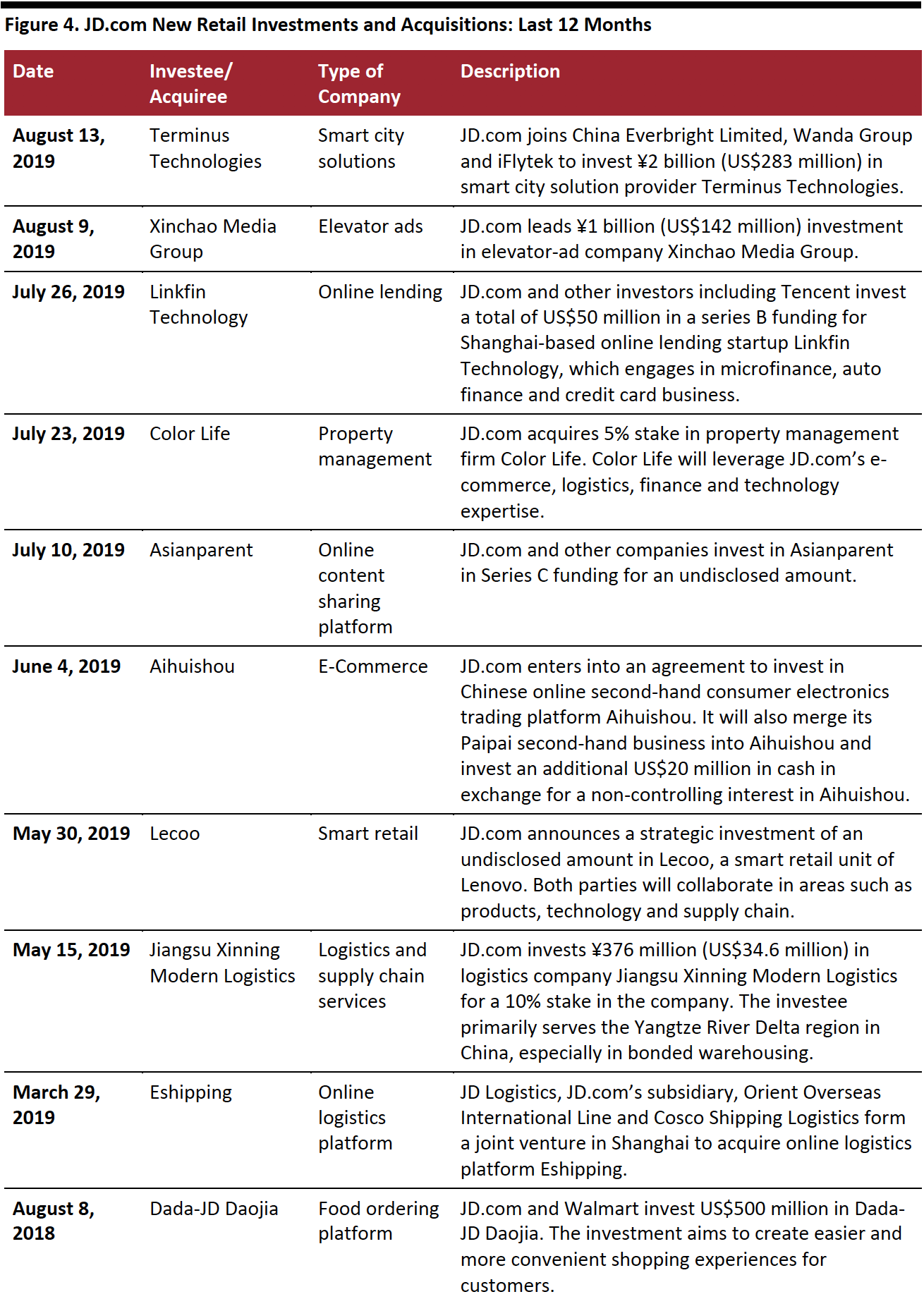
albert Chan
New Retail Briefings
“New Retail” is a model for integrating online retail, offline retail and logistics across a single value chain powered by data and technology. The term was coined by Alibaba Group, although many other companies in China and elsewhere are implementing various elements of the model. In this biweekly series, we review the latest trends in New Retail, with a focus on major digital platforms and multichannel retail companies in China.
What’s New in New Retail
Customers Can Now Order Starbucks Coffee from Tmall Genie
Starbucks customers in China can now order coffee by asking Tmall Genie, an Alibaba-developed smart speaker that can respond to voice command, and have it delivered within 30 minutes. Users can also track the delivery status of their beverage in real time and link their Starbucks membership accounts to the smart speaker to earn Star rewards and enjoy free food and drinks with accumulated purchases.
The launch of the new service marks the one-year milestone of the strategic partnership between Alibaba and Starbucks. The smart speaker is available in the brand’s classic shade of green and features its teddy-bear mascot “Bearista.” China’s popular key opinion leader Viya Huang helped sell out around 3,000 Starbucks Genies, priced at ¥199 ($28) each, in a five-hour livestream on September 16.
Starbucks has been working with Alibaba to transform the coffee experience in China. This includes its partnership with Ele.me, Alibaba’s on-demand delivery platform, and Freshippo, Alibaba’s New Retail-themed fresh food supermarket, to enhance the speed and reach of coffee delivery in China.
[caption id="attachment_97750" align="aligncenter" width="700"] Starbucks debuts a new Starbucks-themed Tmall Genie smart speaker.
Starbucks debuts a new Starbucks-themed Tmall Genie smart speaker.Source: Alizila[/caption]
Coresight Research insight: On-demand delivery is the new hit in China’s New Retail development. Customers are expecting more efficient delivery from a variety of local service operators. Ordering coffee through Tmall Genie and the exclusive launch of a Starbucks-themed Genie speaker not only provide more ways for customers to order coffee besides mobile apps, but also enriches the shopping experience that helps bolster customers’ impressions of the brand.
Taobao Launches Weibo-Style Hot-Topic Live Ranking
Taobao has introduced a new feature of hot-topic live ranking, similar to what micro-blogging site Weibo has been doing based on the social topics that are being most searched on the Internet. When clicking on each hot topic, Taobao users will be directed to the relevant products on the next page. For example, in the following picture, the number-one hot topic is “where granny-chic hipsters gather.” When Taobao users click on it, they will then see a list of granny-chic fashion items in the next page and can order products directly from there. However, currently only around half of Taobao users can see this new feature, presumably because Taobao is trialing it before a full launch.
[caption id="attachment_97751" align="aligncenter" width="700"] Hot-topic live ranking where the number one topic is “where granny-chic hipsters gather” (left); Taobao users can then see a list of granny-chic fashion items on the next page (right).
Hot-topic live ranking where the number one topic is “where granny-chic hipsters gather” (left); Taobao users can then see a list of granny-chic fashion items on the next page (right).Source: Coresight Research[/caption]
Coresight Research insight: Taobao has long been a search-based e-commerce platform on which customers type specific words to find the products they want. This hot-topic live ranking feature reveals Alibaba’s intention to blend social elements into e-commerce: The platform is leveraging data and technology to prompt users to discover goods from trending topics and drive traffic on Taobao.
JD.com Partners with Offline Retail Companies To Speed Up Delivery
JD.com has launched a new supply-chain program that brings online and offline retail companies and partners closer together. Under this new initiative, the products-to-consumers journey can be shortened by leveraging retail partners’ offline stores to fulfill delivery needs. For example, if a product that a customer buys on JD.com is available at a retail partner’s offline store, the product might be shipped directly from there if it is faster than shipping from JD.com’s warehouses.
The new program comprises different offline channels including supermarkets, convenience stores, brands’ offline stores and Dada-JD Daojia, JD.com’s on-demand delivery services platform, covering 20,000 offline stores in 54 cities. Delivery time under the new program will range from 30 minutes to two hours. Bulky and heavy products such as beverages, wine and rice which are hard to store and ship are covered in the program.
This initiative is a continuation of the strategic alliance between JD.com and Walmart that was formed in 2016, through which products bought on JD.com can be shipped directly from Walmart stores to expedite delivery.
Appendix: New Retail Developments
New Retail developments in China are listed in Figure 1.
[caption id="attachment_97752" align="aligncenter" width="700"] Source: Company reports/Coresight Research[/caption]
Source: Company reports/Coresight Research[/caption]
Investments and Acquisitions in New Retail
To expand New Retail abilities, Alibaba, Tencent and JD.com have invested in logistics firms, online marketplaces, content-creation companies and even brick-and-mortar stores. See selected transactions in the following tables:
[caption id="attachment_97753" align="aligncenter" width="700"] Source: Company reports/Coresight Research[/caption]
[caption id="attachment_97754" align="aligncenter" width="700"]
Source: Company reports/Coresight Research[/caption]
[caption id="attachment_97754" align="aligncenter" width="700"] Source: Company reports/Coresight Research[/caption]
[caption id="attachment_97755" align="aligncenter" width="700"]
Source: Company reports/Coresight Research[/caption]
[caption id="attachment_97755" align="aligncenter" width="700"] Source: Company reports/Coresight Research[/caption]
Source: Company reports/Coresight Research[/caption]